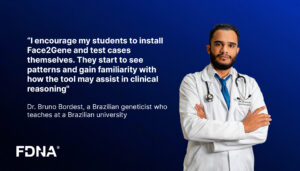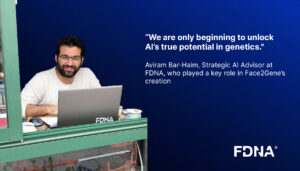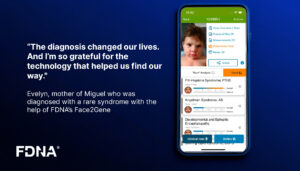April 10, 2017
STAT NEWS
“The algorithms in general work on the same principles: measuring the size of facial features and their placement to detect patterns. They’re both trained on databases of photographs doctors take of their patients. The NIH works with partners worldwide to collect their photos; FDNA accepts photos uploaded to Face2Gene. Whereas the NIH algorithm can predict if someone has a genetic disorder, the Face2Gene algorithm spits out not diagnoses, but probabilities. The app describes photos as being a certain percentage similar to photos of people with one of the 2,000 disorders for which Face2Gene has image data, based on the overall “look” of the face and the presence of certain features. However, the app won’t give clinicians a yes or no answer to the question.”
The article describes that Face2Gene, a facial-recognition software, is revolutionizing to expedite the diagnosis of developmental and genetic disorders. By analyzing facial features, AI-driven technology can identify characteristic markers of various syndromes, aiding in the early and accurate diagnosis of rare genetic conditions. This decision support tool has proven particularly valuable in regions with limited access to genetic specialists. Nonetheless, Face2Gene represents a significant advancement, offering hope for improved patient outcomes through timely and precise identification of genetic disorders.


